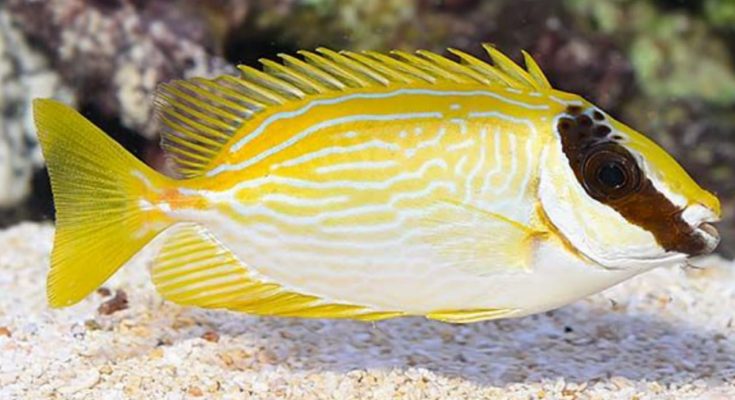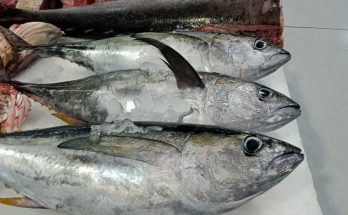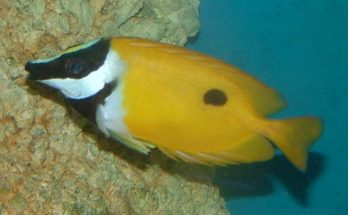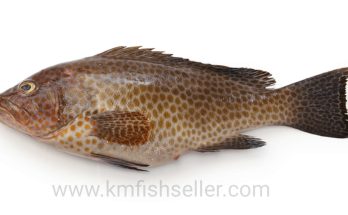The Masked Spinetail, scientifically known as Pseudanthias tuka, is a dazzling marine fish species that inhabits the coral reefs of the Indo-Pacific region. Recognized for its vibrant colors and distinctive patterns, this species not only enchants marine enthusiasts but also brings a range of benefits to both ecosystems and human interests. This article explores the multifaceted advantages of the Masked Spinetail fish, from its ecological role to its economic and recreational value.
1. Ecological Significance
1.1 Enhancing Reef Health
The Masked Spinetail plays a pivotal role in maintaining the balance of coral reef ecosystems. Its presence contributes to:
- Algae Control: By feeding on algae, the Masked Spinetail helps prevent algal overgrowth that can smother corals. This grazing behavior supports coral health and encourages vibrant reef ecosystems.
- Food Web Dynamics: As a prey species for larger predators and a predator of smaller organisms, the Masked Spinetail is integral to the reef food web, helping sustain diverse marine life.
1.2 Indicator of Environmental Changes
The Masked Spinetail can act as an indicator species, reflecting changes in reef conditions such as water quality and temperature. Monitoring its population and health provides valuable insights for conservationists and marine biologists, aiding in the early detection of environmental stressors.
2. Economic Contributions
2.1 Value in the Aquarium Trade
The Masked Spinetail’s striking appearance makes it a prized specimen in the marine aquarium trade. This demand supports:
- Local Economies: Sustainable harvesting of Masked Spinetails generates income for communities involved in their collection and sale, providing economic benefits and livelihoods.
- Conservation Funding: Revenue from the aquarium trade can be allocated to reef conservation and research projects, helping to preserve coral ecosystems and support marine biodiversity.
2.2 Promoting Sustainable Practices
In areas where sustainable practices are implemented, the collection of Masked Spinetails can be managed to minimize ecological impact. This balance between economic activity and conservation is crucial for ensuring the long-term health of marine environments.
3. Recreational and Educational Value
3.1 Appeal to Marine Enthusiasts
For aquarium hobbyists, the Masked Spinetail offers:
- Educational Opportunities: Observing this species in home aquariums provides educational experiences about marine life, fostering a deeper understanding and appreciation of ocean ecosystems.
- Aesthetic Pleasure: The vibrant colors and unique behavior of the Masked Spinetail enhance the visual appeal of marine tanks, adding to the enjoyment of aquarium enthusiasts.
3.2 Raising Conservation Awareness
The popularity of the Masked Spinetail in the aquarium trade can lead to increased awareness about marine conservation. Enthusiasts often become advocates for reef protection and sustainable practices, contributing to broader conservation efforts.
4. Scientific Research
4.1 Behavioral Insights
Research on the Masked Spinetail’s behavior, including its schooling patterns and feeding habits, provides valuable data on fish ecology and social structures within reef environments.
4.2 Conservation Research
Studying this species helps scientists understand the impacts of environmental changes on reef fish populations. Such research is essential for developing effective conservation strategies and addressing challenges such as climate change and habitat degradation.
Conclusion
The Masked Spinetail fish is a remarkable species with significant ecological, economic, and recreational benefits. Its role in reef health, economic contributions to local communities, and appeal to aquarium enthusiasts underscore its importance in both marine ecosystems and human activities. By recognizing and supporting the conservation of this vibrant species, we contribute to the preservation of coral reefs and the overall health of our oceans.



